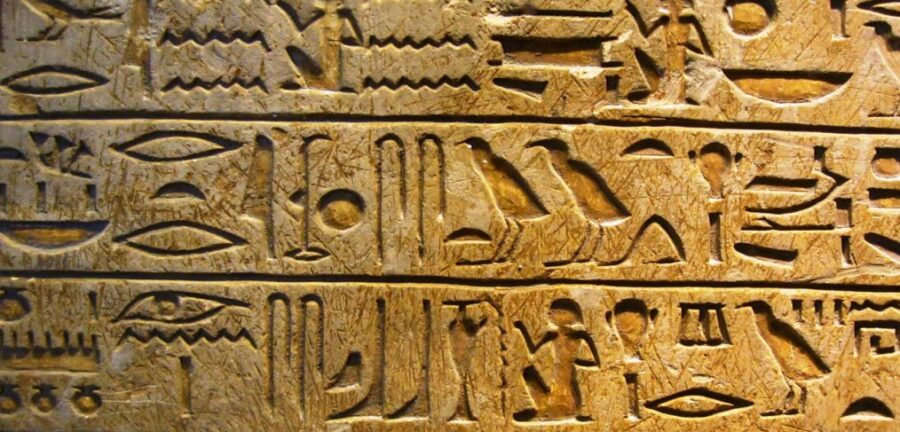Job is my favorite book of the bible. In some ways, this is a bit terrifying. Something in the back of my mind tells me that liking the book of Job so much might not be such a good idea. I say this because if you are always pondering the book of Job, then it seems likely that God will eventually have to test you like Job, to insure that you really do “understand” the message. All fears aside, there are many intriguing aspects to the book. But oftentimes those aspects go unexplored. For most of us, we have maybe read the first two chapters of the book and the last one. Skip all the poetry in the middle. Too hard to comprehend. But in skipping the dialogue, we miss out on some of the most precious truths in all the Wisdom Literature. In the next couple of weeks, I want to explore the gospel according to Job. Each week I will focus on one passage from the dialogue that draws out the gospel message.
In preface, many times when we attempt to look for shadows of Christ or the gospel in the Old Testament, the discussion becomes highly anachronistic. That is, we can excessively read the New Testament back into the Old Testament shadows. Some of this is legitimate and inevitable because the connections between the shadows and the substance are always linked. However, when these connections become forced or excessive, it often silences the beauty and message of the Old Testament shadow. My goal is to avoid this as much as possible in the coming weeks.
For he is not a man, as I am, that I might answer him, that we should come to trial together. There is no arbiter between us, who might lay his hand on us both. Let him take his rod away from me, and let not dread of him terrify me. Then I would speak without fear of him, for I am not so in myself-Job 9:32-35
The central plea of Job is for a mediator, an advocate, a redeemer. In this text, it is important to consider what has led Job to making such a plea. Up to this point in the dialogue, Eliphaz and Bildad have been absolutely brutal to suffering Job. Though Job has faced horrible losses, including that of his children, Bildad has the nerve to suggest to him that, “If your children have sinned against [God], he has delivered them into the hand of their transgression” (Job 8:4). Now, I’m no certified counselor, but this suggestion from Bildad is ruthless. Additionally, the very thing Job is calling out for, a mediator, has been denied to him by Eliphaz (Job 5:1). It is with such torturous words in view that Job will go on to classify his friends as miserable comforters (Job 16:2). The three friends who ought to have pleaded his case before the majesty of heaven, have done anything but that. Though Job had hoped that they would mediate on his behalf, he quickly realizes that they are not fit for the job.
If close friends and even one’s own wife (Job 2:9) are inadequate mediators, then where is one to be found? At this juncture, Job starts to hope that a mediator will be found outside of the realm of humanity. And as the book progresses he goes from hoping for a mediator to being certain that one must exist (Job 16:19; 19:25). Job is looking for someone who can “officiate” this struggle between him and God. A couple of clues in our text show us that this mediator is undoubtedly pointing to the true man of sorrows, Jesus Christ. First, whoever this mediator is, he must be able to lay his hand on both God and Job. I would go so far as to suggest here that Job recognizes this arbiter cannot be a human. In verse 32, he recognizes the difference between himself, a man, and God. Job recognizes that even as a just man who is full of integrity, not only could he not lay his hand on God but he can’t even answer him should they come to trial. Yet this arbiter must not only be able to speak to God, but to actually touch him. To say that Job had some Chalcedonian understanding of this arbiter is simply going too far. But to say that Job has an understanding that this arbiter must be something beyond a plain human being seems textually warranted. And of course, we know that as revelation progressed, the identity of this arbiter would be revealed in the person of Jesus Christ as we hear the apostle Paul saying, “For there is one God, and there is one mediator between God and men, the man Christ Jesus” (1 Tim 2:5).
There is something else important to note in this passage and that is how Job highlights the value of God. Indeed, Job shows that God is the supreme treasure of life in this passage. Why is Job looking for an arbiter? He tells us in verse 34 that it is because he desires God to, “take his rod away… and let not dread of him terrify me.” This is a cry that he also repeats elsewhere in the book (Job 13:21). In this cry, we see that Job is centrally and without exception concerned about his lost friendship with God. What makes Job’s arguing with God so unique is that at no point does Job complain to God about his lost possessions. Job is not pleading with God to regain his possessions or his health. Now, the loss of possessions does have meaning. But it is not an ultimate meaning. Job takes this loss of possessions to signify that something is seriously wrong between him and God. But it is the loss of friendship with God that concerns him, not the possessions themselves. Francis Andersen puts it best when he says, “His concern from beginning to end is God; not his wealth or health, but his life with God. It is because he seems to have lost God that he is in such torment.”
It is easy for the human heart to elevate gifts above giver. This temptation would have certainly been there for Job. He had everything. Yet in his cry we find out where the true treasures of life are to be found and that is in God himself. Amidst possessing all that life could offer, Job is making his plea because he wants God back. If only things could be made aright between him and God, then everything else would be ok. So strongly does Job believe this that he is able to say, famously, “Though he slay me, I will hope in him” (Job 13:15). Despite the fact that God is the one slaying him, he simultaneously finds him to be his only hope.
Job’s approach to suffering is a sharp rebuke to much of western Christianity. I say this because our grief (mine included) in the midst of loss often centralizes its concern around that “thing” which was lost. Perhaps Job shows us that we know far too little of God. Because here was a man who lost more than any human being could conceive of losing and yet all he hopes for is a renewal of his friendship with God. If only he can rest comfortably in the friendship of God, all will turn out ok. Do I approach loss in this way? Do you?
Thus we see a central message emerging in this passage of Job. At its core, the gospel according to Job can be summed up in the following manner: God is of ultimate import and since we are but men, we need a mediator to help us access this God whose value is beyond measure.





2 Comments
Leave your reply.